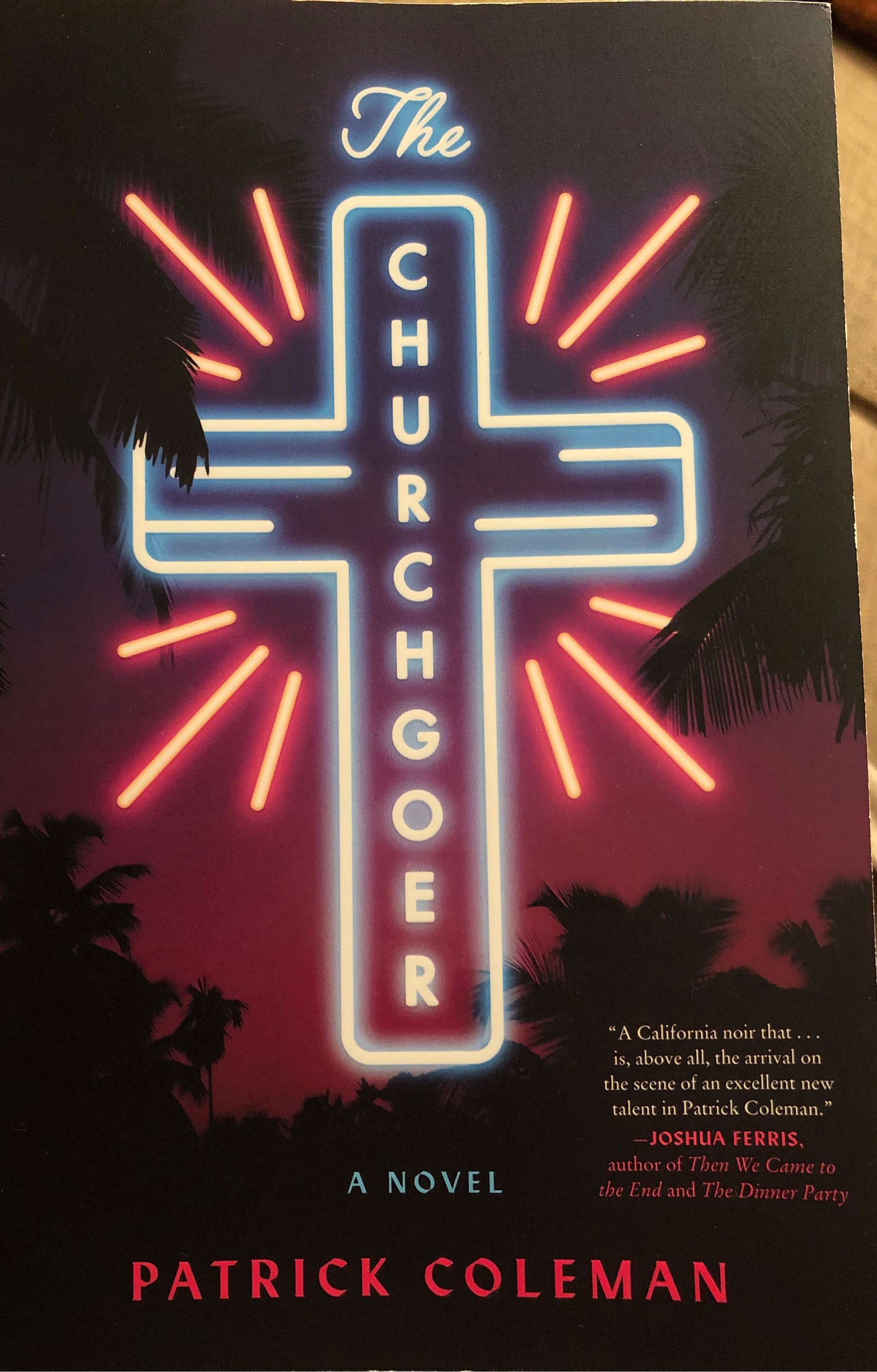San Diego atheist noir: On Patrick Coleman’s *The Churchgoer* 📚
The Churchgoer
I stayed up late to finish The Churchgoer, a new novel written by Patrick Coleman. It’s San Diego noir about mega-churches, faith and doubt, and about learning to accept love from others, despite unshakeable belief that you don’t want or deserve it.
It’s so good. The voice is brilliant from start to finish. The narrator and central character is a former youth pastor turned atheist. His theological training gives him exegetical and etymological habits that won’t die, though his faith has; they’re a source of brilliant and fresh metaphor.
The narrator, Mark Haines, skewers American mega-church evangelicalism for being parasitical on the latest trends in pop culture, no matter how little those trends have to do with Christianity. He scorns the superficial sense of “mystery,” invoked in ways that are “about as humbling as the Grand Canyon printed on a poster about hard work.” For those who have spent any time within American evangelicalism, critiques like these may ring true. Others simply reveal the limits of Haines’s own religious experience and education. He’s far from perfect, but he’s decent enough—and endearingly full of wild ideas about God, Scripture, and the church.
By the end of the novel, Haines’s self-righteous anger at his former church and life has grown wearying—but he’s grown weary of it himself, and shows signs of recognizing that the deep and real flaws of that world don’t give him an excuse for a life of resentful bitterness. Haines’s past is filled with deep pain and sorrow. But by the novel’s end, he’s surprised to find some reasons for hope.
I loved this book, and it makes me want to revisit Christopher Beha’s What Happened to Sophie Wilder, which shares some themes and which I also loved. Perhaps I’ll write more about the two books once I do so. In the meantime, I highly recommend The Churchgoer to you.
